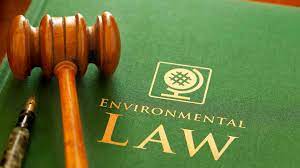Introduction
Continuing education plays a vital role in the field of environmental law, allowing professionals to stay updated on legal developments, expand their knowledge, and enhance their career prospects. This article explores the importance of continuing education for environmental lawyers and provides insights into various avenues for career growth in this dynamic field.
Importance of Continuing Education
- Staying Updated: Environmental law is a constantly evolving field, with new legislation, regulations, and case precedents emerging regularly. Continuing education ensures that environmental lawyers stay abreast of these changes and maintain a current understanding of the legal landscape.
- Expanding Knowledge: Continuing education programs offer opportunities to deepen knowledge in specific areas of environmental law, such as climate change, water law, or environmental justice. This specialized knowledge allows environmental lawyers to provide enhanced legal counsel to clients or pursue new career opportunities.
- Networking and Collaboration: Continuing education events, seminars, and conferences bring together professionals, experts, and thought leaders in the field of environmental law. These gatherings provide valuable networking opportunities, fostering collaboration and the exchange of ideas.
- Enhancing Professional Skills: Continuing education programs often focus on developing practical skills relevant to environmental law practice. These skills may include legal writing, negotiation, mediation, environmental impact assessment, or advocacy. Strengthening these skills can contribute to career advancement.
Avenues for Continuing Education
- CLE Programs: Continuing Legal Education (CLE) programs offer courses, workshops, and seminars specifically designed for legal professionals. Many organizations, including bar associations, law schools, and specialized legal education providers, offer CLE programs with a focus on environmental law.
- Specialized Certifications: Consider pursuing specialized certifications in areas of environmental law that align with your interests and career goals. Certifications provide formal recognition of expertise and can enhance your professional credibility.
- Graduate Studies: Pursuing a master's degree or a postgraduate certificate in environmental law or a related field can provide in-depth knowledge, research opportunities, and access to faculty and professionals in the field. Programs such as Master of Laws (LL.M.) in Environmental Law or Environmental Policy offer specialized education.
- Online Courses and Webinars: Online platforms provide a wide range of environmental law courses and webinars, allowing professionals to access learning materials at their convenience. These options offer flexibility for busy practitioners to continue their education while managing their professional commitments.
- Environmental Law Conferences and Seminars: Attend conferences, seminars, and symposiums focused on environmental law. These events feature expert speakers, panel discussions, and workshops covering various topics in environmental law. They provide a platform for learning, networking, and professional development.
Career Growth Opportunities
- Advancement within Organizations: Environmental lawyers can pursue advancement within their current organizations, taking on leadership roles, supervising junior lawyers, or leading environmental law practice groups. Demonstrating expertise, strong performance, and leadership skills can open doors for career growth.
- In-house Counsel Positions: Transitioning to an in-house counsel role in corporations or organizations with a significant environmental impact can provide new challenges and opportunities for career advancement. In-house counsel positions often involve advising on complex environmental issues, managing risks, and driving sustainability initiatives.
- Consulting or Policy Roles: Environmental lawyers can explore consulting firms, think tanks, or government agencies where they can apply their legal expertise to advise on policy development, conduct environmental impact assessments, or contribute to sustainability initiatives.
- Academic and Research Positions: Pursuing a career in academia or research offers opportunities to contribute to the field through teaching, publishing scholarly articles, and conducting research on environmental law topics. Academic positions provide a platform for mentoring future environmental lawyers and shaping the field through research contributions.
Conclusion
Continuing education and career growth opportunities are essential for environmental lawyers to thrive in their field. Engaging in continuing education programs, pursuing specialized certifications, attending conferences, and exploring graduate studies are all avenues for professional development. Additionally, career growth can be achieved through advancement within organizations, transitioning to in-house counsel positions, exploring consulting or policy roles, or pursuing academic and research positions. By actively seeking opportunities for continuing education and career advancement, environmental lawyers can stay at the forefront of the field, expand their expertise, and make a lasting impact on environmental protection and sustainability.





Comments